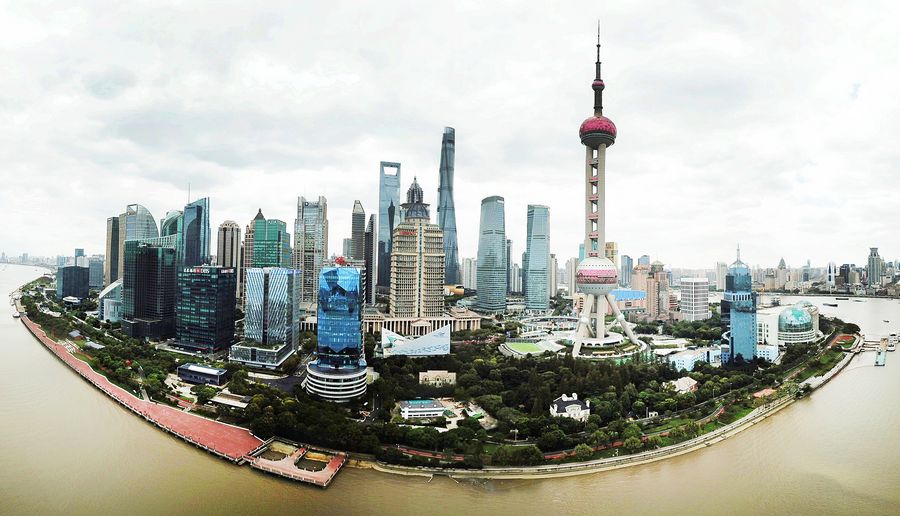All-out efforts needed to build a moderately well-off society


Modernization will lead China toward national rejuvenation. As the architect and leader of China's modernization drive, the Communist Party of China, has improved the national governance system and enhanced its governance capacity to achieve the goal of building a moderately well-off society in all respects by the end of 2020.
The fourth and fifth National People's Congress worked out plans for the modernization of agriculture, industry, science and technology, and national defense sectors. In 1980, the international standard for determining a modern society was per capita GNP of $3,000, while China's per capita GNP was only $250. To achieve national modernization, the CPC advanced the "three-step strategy": increasing per capita GNP to $500 by 1990, and $1,000 by 2000.
After China's per capita GDP reached $1,000 by 2001, the CPC adjusted the country's economic development to realize the "Two Centenary Goals"-of building a moderately prosperous society in all respects by 2020, and developing "a great modern socialist country that is prosperous, strong, democratic, culturally advanced, harmonious, and beautiful" by 2049.
That China is moving toward achieving the twin goals is evident from the fact that its per capita GDP crossed $10,200 last year.
After 1978, the CPC focused on economic construction, making reform and opening-up the main drivers of economic development. Apart from implementing programs to build a moderately well-off society in all respects, the Party also focused on comprehensive reform by deepening economic reform. And to deepen reform, the Party strengthened socialism with Chinese characteristics while making greater efforts to modernize the national governance system and improve its governance capacity.
The national governance system includes all institutional mechanisms, laws and regulations in the fields of economy, politics, culture, society, ecological civilization and Party construction. The Party has promoted modernization in these fields through institutional reform to realize the goal of building a prosperous, strong, democratic, culturally advanced, harmonious, and beautiful China, and promote all-round development of "material civilization, spiritual civilization, political civilization, social civilization and ecological civilization".
Besides, the CPC has taken measures to improve its market economy governance capacity, in order to ensure socialist market economy minimizes the risk of market failure and prevents loss of State assets. It also aims to improve its State governance capacity by deepening inner-Party reform so it can eventually achieve national modernization for the benefit of all people.
Minimizing risks, alleviating poverty and reducing pollution are all major challenges that have to be overcome to build a moderately well-off society in all respects. In fact, the 19th National Congress of the CPC focused on removing obstacles on the path of national modernization by launching campaigns aimed at preventing and solving major risks, targeted alleviation of poverty, and prevention and control of pollution.
And since the three major challenges are intertwined, the CPC is promoting collaborative governance to solve key problems. For example, as poverty and environmental pollution form a vicious circle in China, most of the poverty-stricken areas are located in regions with poor ecological environment. To solve this problem, the CPC has made alleviating ecological poverty a part of its targeted poverty alleviation work.
In ecologically fragile regions, the Party has been making painstaking efforts to manage local ecological environments through ecological conservation, restoration, construction and protection programs. Thanks to these efforts, impoverished regions with poor ecological environments will eventually emerge out of poverty with better and improved ecological environments. And, more importantly, poverty-stricken people in such areas can improve their livelihoods through ecological migration.
Moreover, in the wake of the novel coronavirus outbreak, the Party requires authorities at different levels to strike the right balance between economic development and epidemic prevention and control. Through collaborative governance, China has removed many obstacles on the economic development path, and there are enough reasons to believe it would do the same to achieve the goal of building a moderately well-off society in all respects.
The author is a researcher at the National Academy of Development and Strategy, Renmin University of China. The views don't necessarily represent those of China Daily.


































